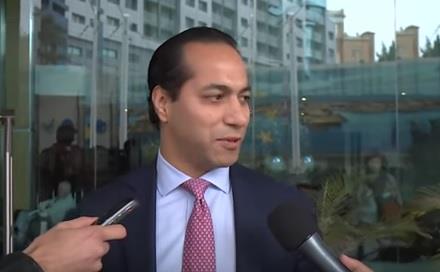No “red flags” cropped up during the due diligence and authorisation process of Pilatus Bank, the Malta Financial Services Authority said in comments to The Malta Independent.
Yesterday morning it emerged from submissions by the US District Attorney of the Southern District of New York, who is prosecuting in the case against Iranian banker and Pilatus Bank owner Seyed Ali Sadr Hasheminejad, that the money used to set up Pilatus Bank stem from criminal proceeds.
Earlier this year, senior MFSA officials were quoted as telling a special tax committee in the European Parliament that it had “no way of knowing” about the investigation. In the meantime, a leaked Financial Intelligence Analysis Unit report claimed to be aware that Ali Sadr was under criminal investigation in a “foreign jurisdiction”.
This newsroom turned to the MFSA to question how it can justify claims of having “no way of knowing” that Ali Sadr was under investigation by the US when it was processing his banking licence to set up Pilatus Bank in Ta’ Xbiex Malta, when it is being claimed that the source of those funds came from criminal proceeds through a development deal in Venezuela. This newsroom questioned the MFSA on the assumption that the source of funds by anybody looking to set up a bank in Malta would be duly investigated.
In its replies, an MFSA spokesperson said:
“The MFSA assesses the source and availability of funds utilised to fund the capital of any licensed entity. Furthermore, apart from fit and proper checks (supported by intelligence reports), the MFSA requests independently certified statements of wealth and checks the activities of the individual(s) concerned. This is further supported by audited financial statements of any related-businesses and companies.
“In the case of Pilatus Bank, no “red flags” cropped up during the due diligence and authorisation process which would have indicated that any of the companies or activities associated with Mr Sadr were involved in any investigations or illicit activities.
“The FIAU and the MFSA exchange intelligence information on an ongoing basis as part of their respective supervisory responsibilities subject to the necessary clearances from other intelligence sources. Such clearances are usually requested to avoid compromising the investigations. The MFSA’s investigation on Pilatus bank is still ongoing and any further regulatory action will be made public.”

Ali Sadr (above) was detained in the USA last March and accused of circumventing US sanctions on Iran when he brokered a development deal for thousands of housing units in Venezuela. He is accused of having used American and Swiss banking systems to affect transactions $115 million, and using complicated structures to conceal that the money was ultimately to be deposited in Iran.
He was also accused of money laundering and defrauding the United States. Sadr has been detained in a Manhattan jail since March and faces a possible 125 years imprisonment should be he found guilty. His first request for bail was denied on the grounds that his significant international connections and vast wealth render him to be a flight risk. Sadr has pleaded not guilty and vociferously stands by his claims.
Since his request for bail was turned down, forty of his friends agreed to put up bonds totalling $14 million, secured by assets worth $6 million for his release. In addition to this, Sadr has co-signed, together with his mother and two sisters a $20 million bond secured by $33 million in assets.
In the US prosecution’s objections to bail, it was argued that the assets and bonds secured by Sadr are encumbered or forfeitable, either by being frozen or stemming from criminal proceeds.
Nationalist Party MP Karol Aquilina published an extract from the document on the prosecutor’s objections yesterday morning on social media.
The prosecution made reference to Sadr’s equity in Pilatus Bank, allegedly worth $12.9 million.
“First, the defendant concedes that this money currently is frozen, and that whatever assets remain after the bank is unwound by the Maltese authorities will be “significantly” less than $12.9 million.
“But, more significantly, regardless of how much money the defendant ultimately receives, his equity in Pilatus Bank is forfeitable because it constitutes criminal proceedings directly linked to the Venezuela project – the defendant used money from the project (CHF 1 million (Swiss Francs) and €8 million) to establish and capitalize Pilatus Bank in 2013).”